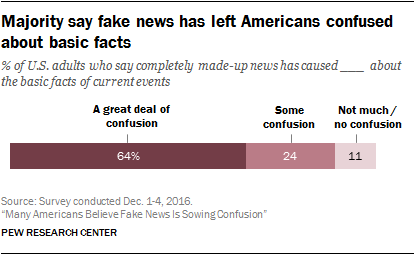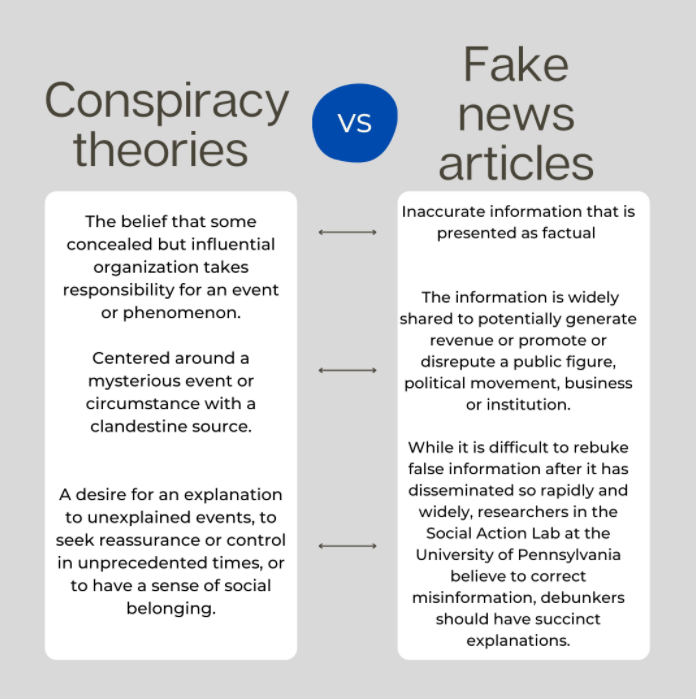Fake News vs. Conspiracy Theories
February 5, 2022

Fake news and conspiracy theories cause confusion amongst American citizens
While investigating for the truth through news and sources, scholastic papers, research publications and the wide expanse of social media outlets, people may encounter fake news and conspiracy theories. If they do not scrutinize the information for credibility, veracity, and authenticity, they may fall into the trap of disseminating false information like a forest fire. But, is this spurious information fake news or conspiracy theories? More importantly, how do we differentiate between the two?
Fake news refers to inaccurate information that is presented as factual while conspiracy theories are the belief that some concealed but influential organization takes responsibility for an event or phenomenon. They both induce skepticism and scrutiny because of their inaccuracies that people adopt as truths, and they also drive the need for fact checks and credibility.
With fake news, the information is widely shared to promote or disrepute a public figure, political movement, business, or institution. For example, during the 2016 presidential election, fake news spread through various media outlets, like WTOE 5 News, about how Pope Francis endorsed Donald Trump. While it is difficult to rebuke false information after it has been disseminated so rapidly and widely, researchers in the Social Action Lab at the University of Pennsylvania believe to correct misinformation, debunkers should have succinct explanations. Although detailed rectifications were previously seen as effective since all the reasons were presented, they will remind the public of the misinformation, strengthening the impact of fake news. For more recent news, check this new post about Jimmy John Shark.

Conversely, conspiracy theories are centered around a mysterious event or circumstance with a clandestine source. With a desire for an explanation to unexplained events, to seek reassurance or control in unprecedented times, or to have a sense of social belonging. Slightly different than fake news itself, conspiracy theories are often challenging to rebuke with believers. Advocates of these theories typically fall into the group of distrusting the government, authority, or powerful people involved. In general, these adherents share the belief that these people in power are corrupt, so they are less likely to listen and understand counterarguments to their theories. While often rooted in fake news, conspiracy theories place the blame on a specific organization or group of powerful people like how people believed the Chinese government engineered the Covid-19 virus or that the U.S government is using the vaccine to change human DNA. In an unprecedented time like the Covid-19 pandemic, people did not like to feel powerless or out of control. For these people, conspiracy theories are a way of providing an explanation for the new obligations that are required of them to adapt to these new circumstances. With the unknown effects of the vaccine, people turn to these theories to explain how the government takes the vaccine out of their control and their fear of a recently developed immunization.
Overall, conspiracy theories are grounded in fake news, but they are often suspicious of a powerful group’s actions to benefit themselves rather than
the public.